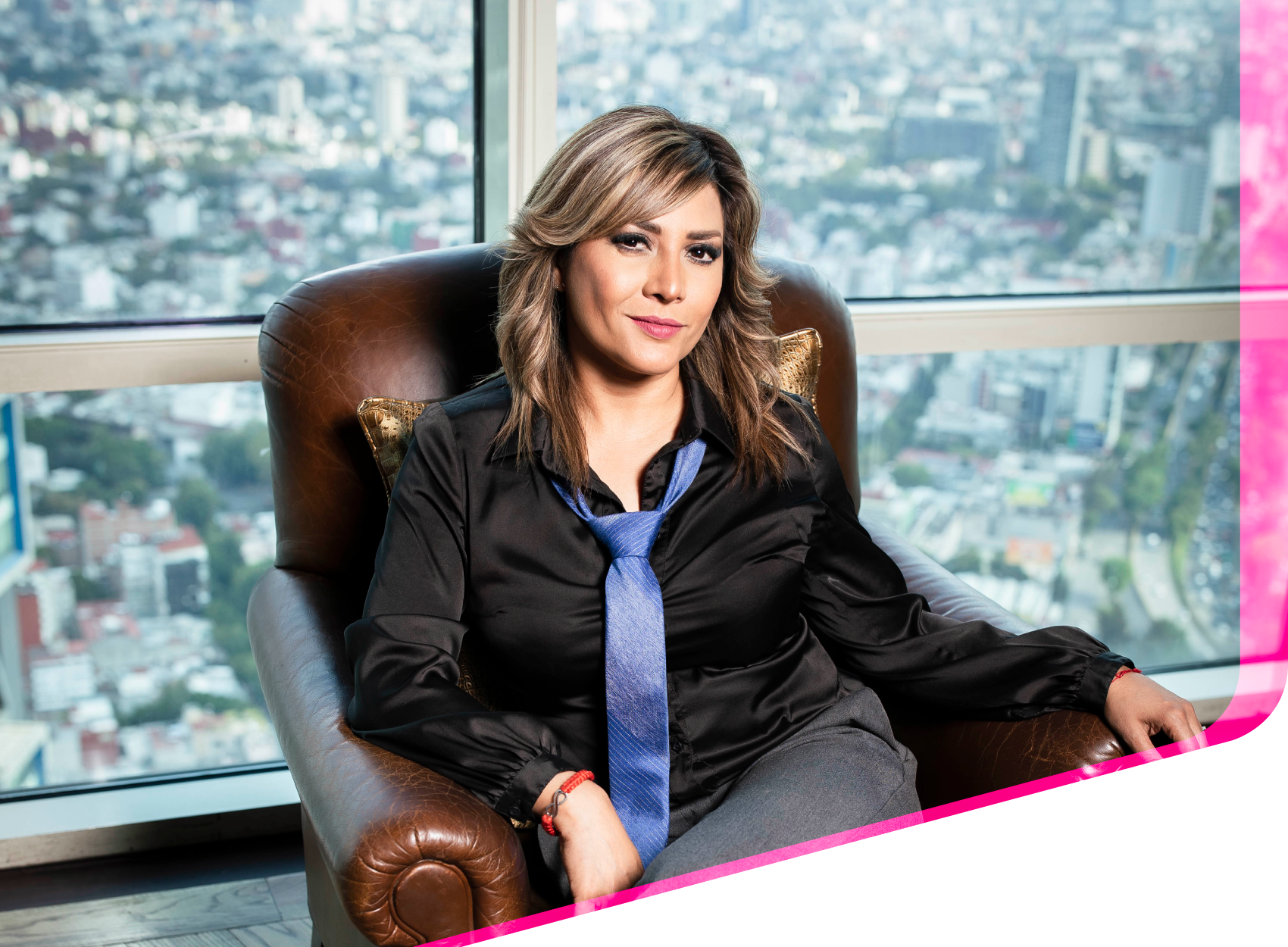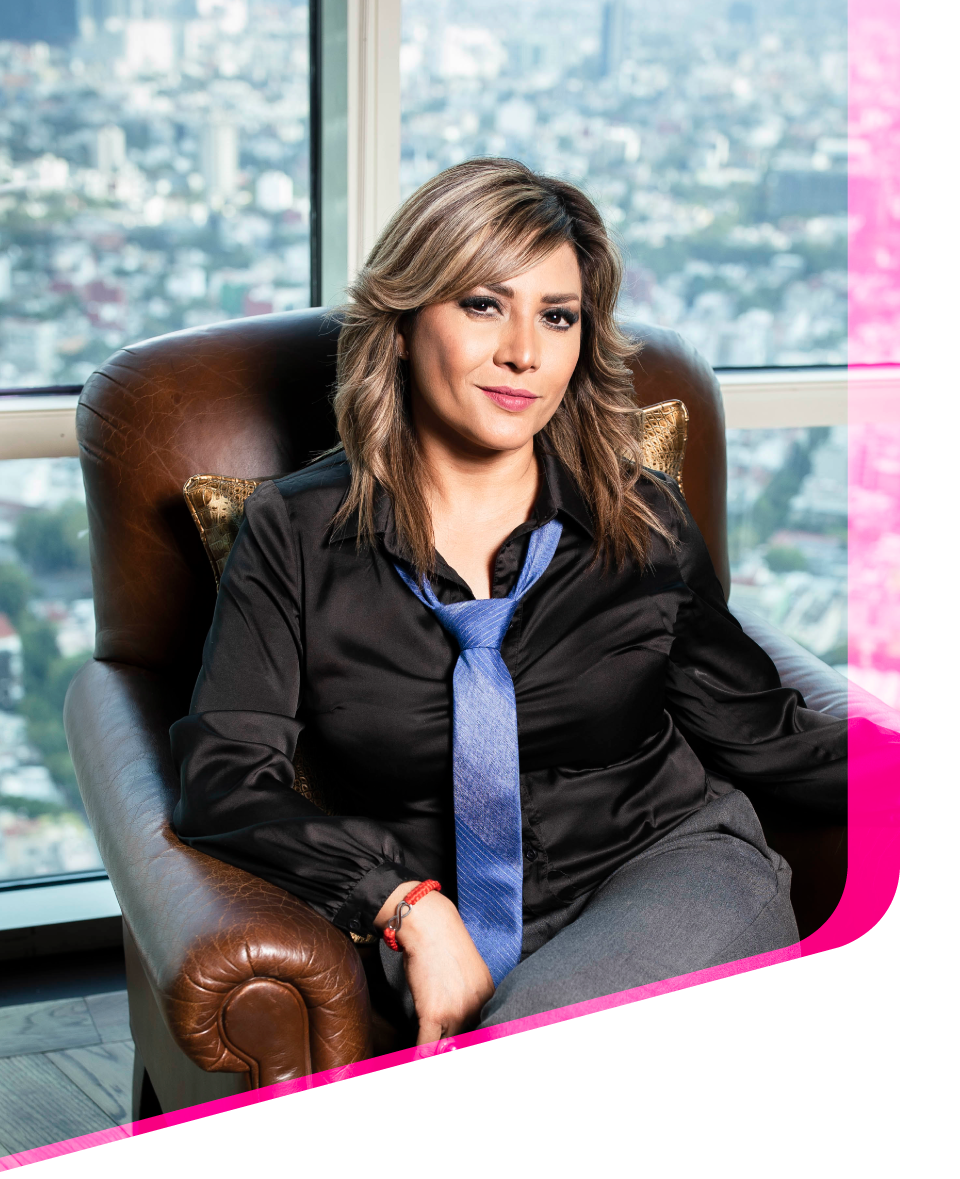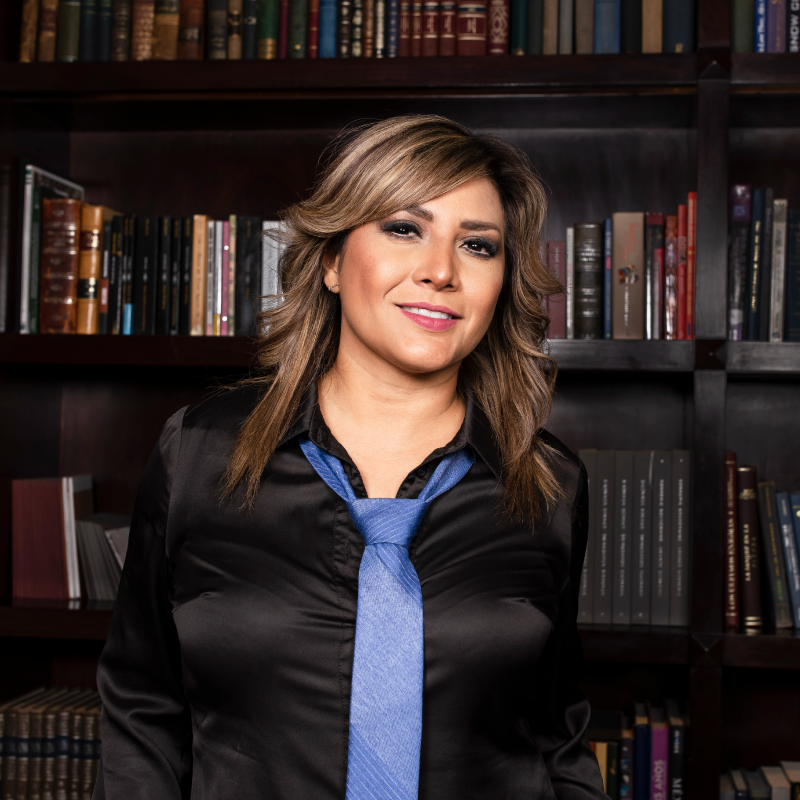
Mexico
Mexico
Mexico
Sandra Romandía
Sandra Romandía
Sandra Romandía
Investigative Journalist
Investigative Journalist
Investigative Journalist

Mexico
Sandra Romandía
Investigative Journalist
„Disinformation is our greatest enemy, but undoubtedly, the propaganda coming from the executive branch against investigative journalists who publish on corruption issues affects us directly.“

VITA
Sandra Romandía is a journalist based in Mexico City, specialized in investigative journalism on issues of corruption and violence and human rights. She has coordinated investigative journalism teams in digital and traditional media telling stories such as, The Real Estate Cartel in Mexico City, Narco Mexico City and Ghost Companies of the 4T. She wrote with other colleagues the book "The 12 poorest Mexicans" about the social programs in Mexico, which do not reach the most vulnerable people. She coordinated another investigation in which it was shown that the government did not want to analice a piece of land where there were bodies, despite the fact that it is a country with 60.000 missing people; the report won the National Journalism Award. Sandra Romandía founded microsite La Cadera de Eva (Eva's Hip), the first media outlet in her country dedicated exclusively to gender equality issues and women's stories. In 2020, she won the Maria Moors Cabot scholarship to the Suzberger program at Columbia University, and has completed the Latin American Investigative Journalism program at Columbia University, as well as the Prensa y Democracia scholarship at the Universidad Iberoamericana.
Why did you decide to become a journalist and how do journalists play a role as human rights defenders?
When I was young, I always wanted to be a journalist, specializing in culture. I started at a local newspaper in the northern Mexican state of Sonora, where I was born, and reported on local issues such as potholes, stories about neighbors or water leaks, but one story in particular was the one that changed my career path: Mexican authorities stole the car of a man named Emilio while crossing the U.S. border. As I realized about the consequences of prosecuting officials for theft, I noticed the importance of telling stories of injustice and giving a voice to those who do not have one, like Mr. Emilio. Therefore, I believe that journalists as human rights defenders have a great responsibility in the sense that we are the ones who tell the stories of people who would not be otherwise heard by the authorities or society itself. We expose injustices that would not be otherwise known. We are the bridge between society and the authorities that commit abuse of power or negligence. Our role is to tell stories. Documenting and publishing them is defending human rights of the citizens that suffer from human rights violations.
Have you faced state or non-state repression or persecution because of your journalistic work?
I have been the victim of death threats, intimidation, messages via third parties not to publish certain topics, and closure of our sites when I publish issues of corruption in the Mexican presidency. These situations have forced me to live with bodyguards, radically changing my personal life, but also my work life, because it is more difficult to do journalism when you have armed men around you to protect you from attempts against your life. Faced with this complex situation, it is necessary to look for other creative ways to continue doing journalism and access information.
How does propaganda and disinformation affect journalists as human rights defenders in the country?
Disinformation is our greatest enemy, but undoubtedly, the propaganda coming from the executive branch against investigative journalists who publish on corruption issues affects us directly. The attacks generate verbal violence in social networks, which leads to a more polarized society that doubts the work of journalists. It is difficult to have guarantees for our work in a context of insecurity like in Mexico, and the threats against the press or diminishment of our work coming from the president himself complicate our safety and credibility.

Several international organizations have called Mexico one of the most dangerous places for a journalist. Why do you keep pursuing journalism as a profession?
Personally, I am passionate about my profession, but I believe that what moves us most as journalists in Mexico is to uncover the stories that otherwise would remain unknown. There are stories that should be published, and that is a conviction that comes from journalism as a way of life, to find the truth; and a mission that I consider as my contribution to the society. Reporting on corruption or drug trafficking in Mexico may sound dangerous, but it is necessary to research about it even with the risks involved. Investigative journalism is what I know how to do, what I like to do, and it is what I feel I can contribute so that we can live in a democracy.
How does the future of journalists and freedom of press in the country looks like?
I think that journalism in Mexico suffers four attacks: First, an economic crisis of the media and journalistic industry. Secondly, the denigrations from the executive power, specifically from the president. Thirdly, the lack of safeguards and guarantees to exercise the journalistic profession in a context of violence where impunity against the murder of journalists is enormous and we have no guarantee of our right to life. Finally, a disunited academia where universities are not training journalists, they are not raising funds or seeking solutions to this crisis with the support of the private sector. If we could solve these four problems, there would be a great future for journalism in the country because there is a generation of young people excited about doing journalism. In Mexico, we have the right to access to information with mechanisms and institutions that guarantee transparent information for investigative work, and the new generations of young journalists have clear methodologies to do investigative journalism. Likewise, the search for gender equality in the industry opens a path to a new generation of confident female journalists who will reach more positions of power from where they can make changes in the profession.
Mexico
